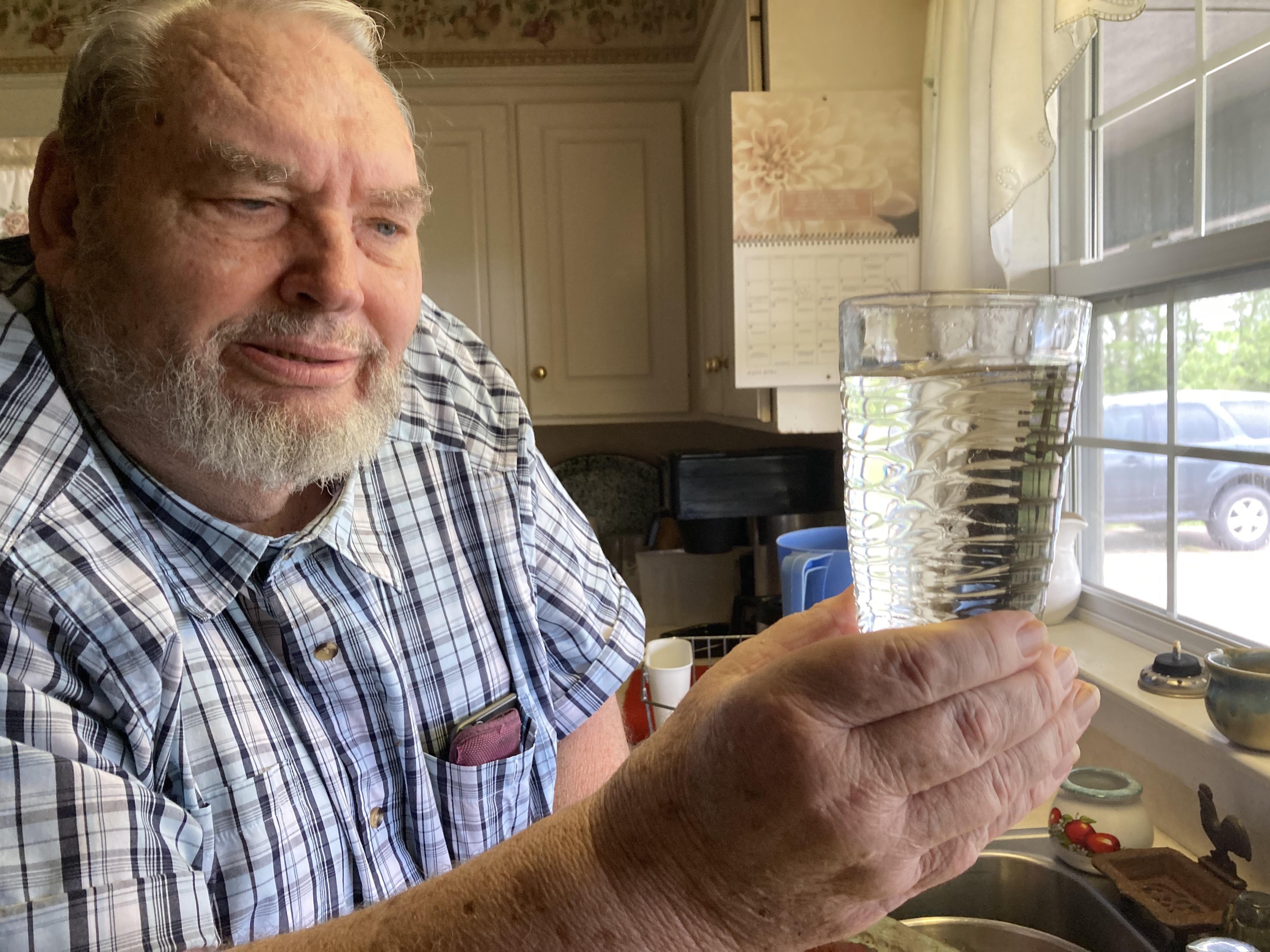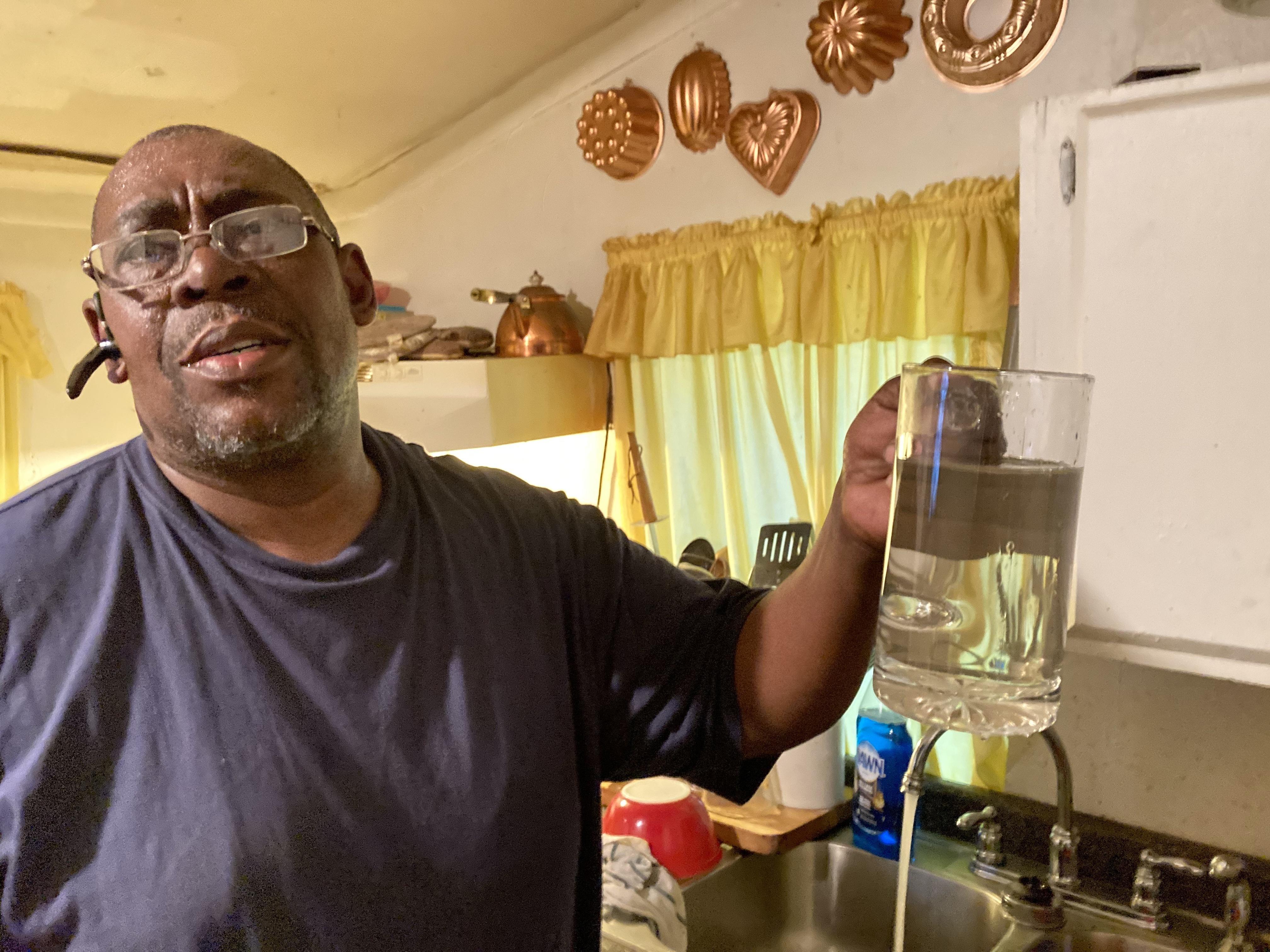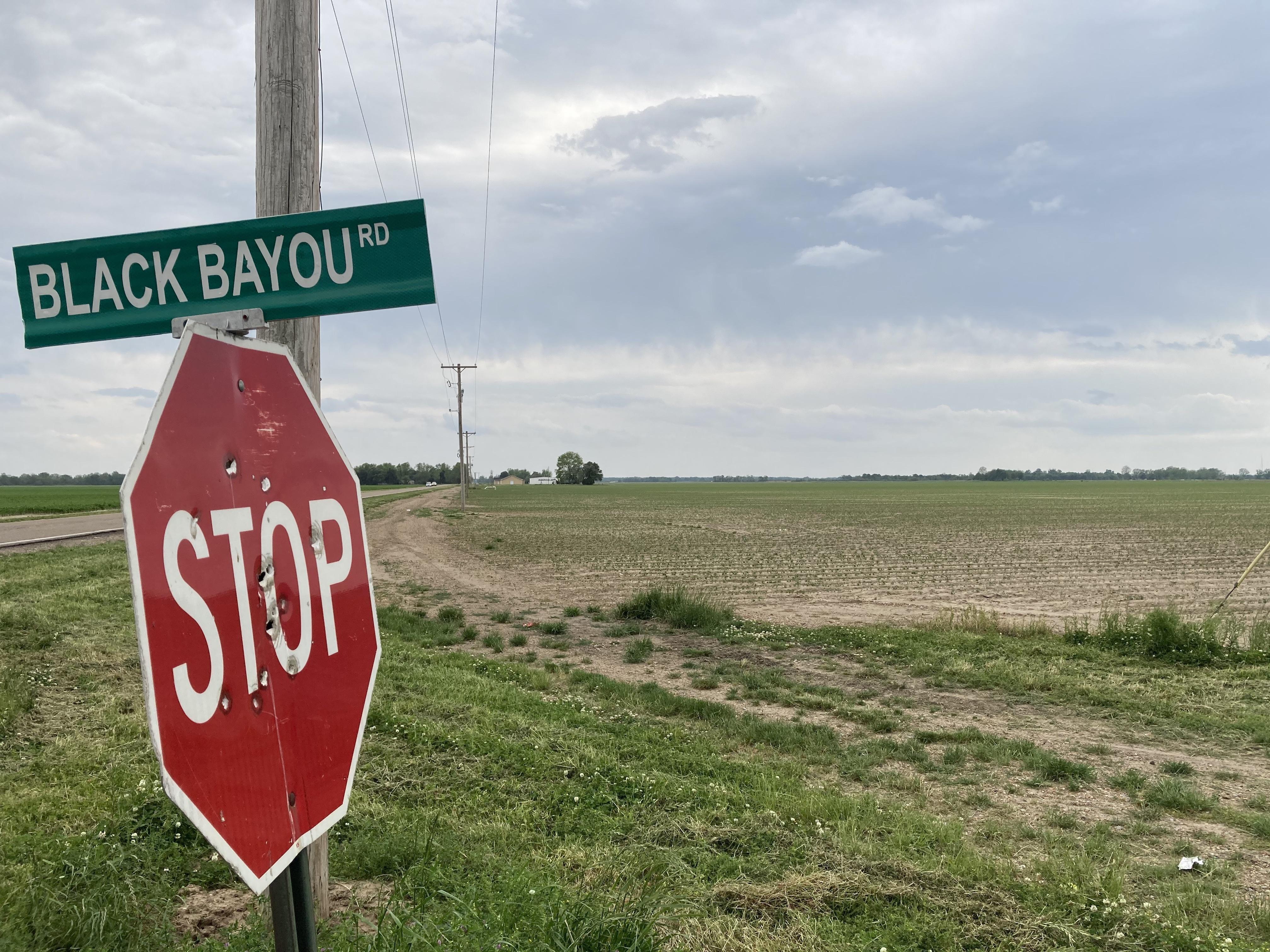George Reynolds lives in an unincorporated, rural community in the Mississippi Delta. At his home in Washington County, about 60 miles northwest of Jackson, having running water used to be a coin flip. And waiting for someone to fix it would take days.
“It ain’t like you can go next door to get no water. You outta water, you outta water,” Reynolds said. “We had to haul some water. We had to go to town or somewhere to get some water.”
A few years ago, Reynolds was one of only about 100 customers left paying for the failing local utility, Darlove-Murphy Water Association. Like a lot of rural communities, the population was shrinking; Washington County’s population declined by 14 percent between 2010 and 2019. There weren’t enough paying customers left for the utility to keep up with maintenance and their own bills.
That changed when Black Bayou Water Association took over in 2017.
“It’s like night and day,” Reynolds said. “When Black Bayou took over, the water come on, the water keep going.”
The utility company formed in 1988 with about 350 customers. Today, it has about 2,700. Over three decades, it merged with neighboring water providers – connecting pipes and customers.
Along with having more people paying bills, merging has other benefits. Black Bayou has fewer water treatment plants and can avoid each system needing its own. Merged utilities can better recruit high-skilled talent, like certified utility operators. And instead of relying on one groundwater well, the providers can pull from different water sources.
That came in handy in February when a severe winter storm froze pipes and some nearby towns lost water for a few days.
The nearby city of Greenville lost water pressure and had a boil water notice for about a week. The Mississippi Rural Water Association estimates about a quarter of the state was under a boil water notice.
“Not to brag but Black Bayou didn’t lose water pressure,” said Black Bayou founder and general manager David Koehn.
A small fraction of customers on the outskirts of Black Bayou’s service area actually did lose water for about half a day, but the majority did not and never had to go under a boil water notice. Koehn deployed old wells the utility would not normally use because of the naturally-brown color of the water.
“Brown water is better than no water,” Koehn said.
Black Bayou’s aggressive consolidation is the exception. Often towns won’t merge until their water system is so broken down, with so few customers left to pay for it, that there are no other options.
That’s part of the reason why the country’s water infrastructure is starting to act its age. A water main breaks every two minutes in the United States. The lack of revenue for rural water associations makes them less suited for repairing and replacing that infrastructure without teaming up.
“We’re starting to see the consequences of the nation’s chronic underinvestment in water infrastructure coming to bear,” said Emily Simonson, the director of strategy for the US Water Alliance.






